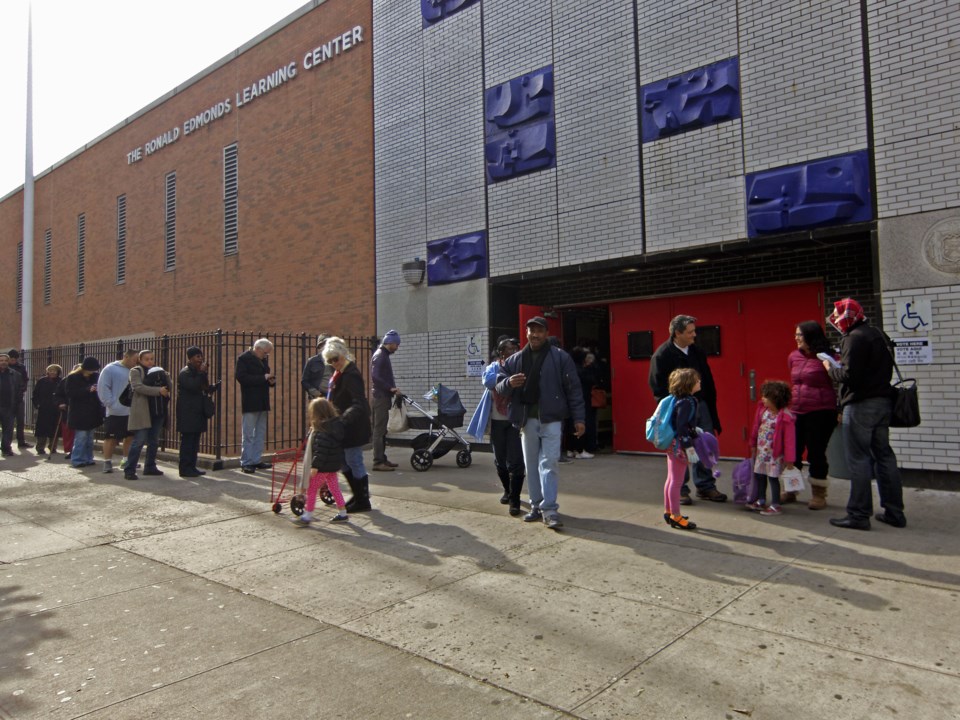With the general elections coming up on Nov. 8, and early voting already underway, it is important to remember that under state and federal law, it is illegal for anyone to intimidate, threaten or coerce voters in an effort to interfere with their right to vote.
“Voting is safe and protected in New York state. Throughout early voting and on Election Day, New Yorkers should be able to proudly cast their ballots without fear of intimidation, unmanageable lines, or inaccessibility,” New York Attorney General Letitia James said in a public statement on voters' rights.
“Voting is a fundamental right and integral to the sanctity of our democracy, and I urge anyone who encounters obstacles to contact my office. I will not allow anyone to threaten the right to vote in New York state.”
James' reminders are crucial — some early Crown Heights voters have already made reports about poll harassment, local news site Col Live reported.
The Office of the Attorney General reminds New Yorkers that the following actions are prohibited under New York state law:
- Requiring an individual to show photo identification to vote
- State and local employees interfering with or affecting the election
- Open carry of handguns, or the possession of machine guns and loaded or unloaded assault weapons, as well as the use of firearms or other dangerous instruments to intimidate or harass
- A member of the United States armed forces preventing, or attempting to prevent, a voter from fully exercising their voting rights through force, threat, intimidation or advice
- Groups of people organizing as private militias without permission from the state
- Invading the privacy of a voting booth used by a voter
Voters should be aware of their rights, noting that the following conduct potentially constitutes illegal voter intimidation: Patrolling outside of polling places; poll watchers inside a polling place engaging in aggressive behavior or challenging large groups of voters.
If voters see behavior leading to long lines or creating false fears that people may be illegally voting, or that there are negative consequences to voting, they should contact OAG’s Election Protection Hotline.
Voters should also call the hotline if individuals or groups displaying weapons or military uniforms or other military paraphernalia are outside of polling locations.
James also noted that federal law has determined that voter intimidation includes threatening violence against voters, threatening economic boycotts due to voting, following voters to poll sites and speaking loudly about prosecuting them for illegal voting.
Additionally, publicly disseminating voters’ names and addresses to vilify those individuals or conducting patterns of baseless arrests and prosecutions in the vicinity of voter registration meetings are voter intimidation actions.
Attorney General James also sent guidance to local Boards of Election on managing long lines and supporting voters with disabilities at high-traffic poll sites. More than 20% of New Yorkers have a disability, so it is crucial for BOEs and poll workers to ensure voting is accessible.
New York law does not require the same accommodations for every voter with a disability, so OAG recommends BOEs instruct poll workers to determine the appropriate accommodations on an individualized basis.
Nevertheless, there are a number of best practices BOEs should employ when assisting voters with disabilities and implementing reasonable accommodations, including but not limited to:
- Instructing poll workers to monitor lines and announce themselves as someone who can provide accommodation to voters with disabilities
- Providing clear and language-accessible signage throughout the polling location to inform voters with disabilities of the availability of accommodations
- Providing voters with disabilities with chairs if they are unable to stand for long periods of time and assisting such voters as necessary as the line moves forward
- Ensuring access to restrooms
- Implementing “placeholders” to wait in line in lieu of voters with disabilities
- Maintaining separate, expedited lines for voters with disabilities
- Escorting voters with disabilities to the front of the line.
New Yorkers who observe any illegal conduct are encouraged to contact OAG’s Election Protection Hotline by calling (866) 390-2992, submitting complaints online, or emailing election.hotline@ag.ny.gov.
Any emergencies or incidents involving potentially dangerous conduct should be reported to local law enforcement immediately by calling 911.




